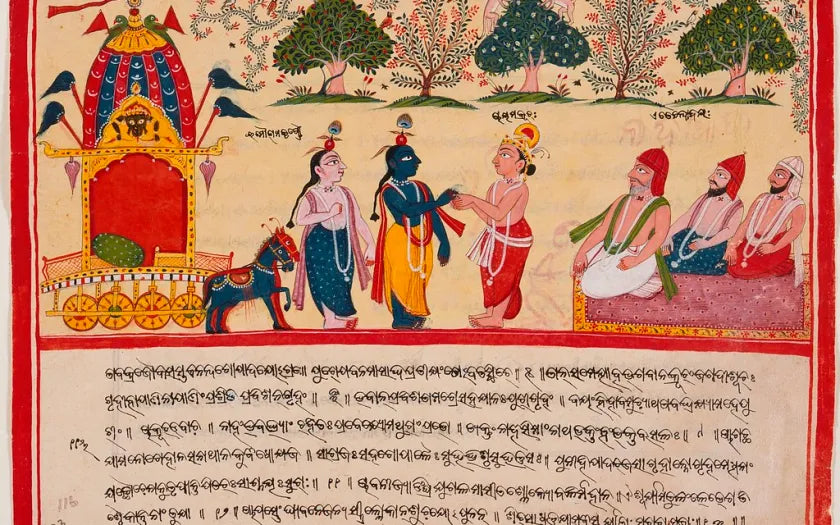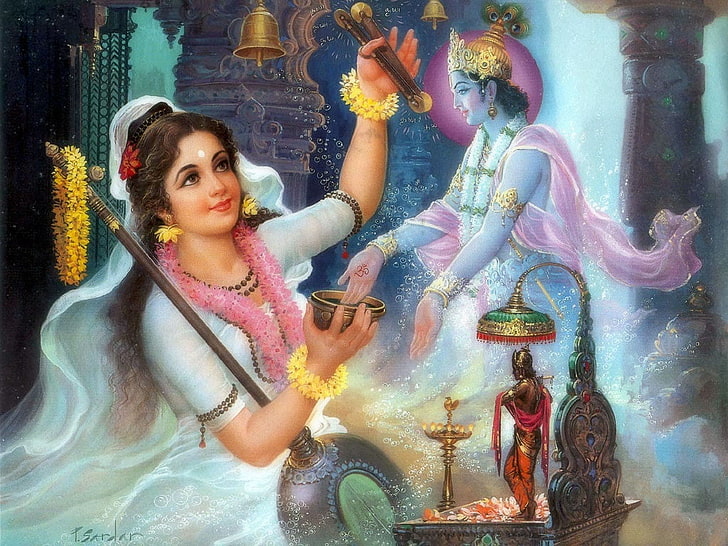
Understanding the Role of Puranas in Hindu Mythology
Hindu mythology is a vast and rich tapestry of ancient stories, legends, and narratives that have shaped the religious and cultural landscape of the Indian subcontinent for millennia. At the heart of this mythology are the Puranas, a genre of sacred texts that play a crucial role in preserving and transmitting the diverse myths, cosmologies, and teachings of Hinduism. In this blog, we delve into the significance of the Puranas, their structure, and their multifaceted functions within the intricate fabric of Hindu mythology.
- What are the Puranas?
The term "Purana" is derived from the Sanskrit word "pura," meaning ancient, and "ana," meaning knowledge. The Puranas are a vast collection of texts that recount the history of the universe, cosmology, genealogies of gods, sages, and kings, and various mythological narratives. They are considered one of the six main categories of Hindu scriptures, known as the Vedangas.
- The Structure and Classification of the Puranas
The Puranas are typically divided into two broad categories: the Mahapuranas and the Upapuranas.
2.1. Mahapuranas: There are 18 principal Mahapuranas, each dedicated to a specific deity or theme. The most well-known among them include the Vishnu Purana, Shiva Purana, Bhagavata Purana, and Devi Purana. These texts narrate the creation of the universe, the genealogies of gods and sages, and the stories of divine incarnations (avatars) and cosmic events.
2.2. Upapuranas: The Upapuranas are subsidiary texts that complement the Mahapuranas. They focus on regional traditions, local deities, and specialized knowledge. While their importance is secondary to the Mahapuranas, they are valuable sources of cultural and historical information.
- Preserving Oral Traditions
The Puranas have played a pivotal role in preserving India's oral traditions and passing them down through generations. Before the advent of written scriptures, knowledge was transmitted orally from one generation to the next. The Puranas provided a framework to encapsulate this knowledge, safeguarding the ancient wisdom from being lost over time.
- Moral and Ethical Lessons
Beyond their mythological content, the Puranas also impart moral and ethical teachings. Through the stories of various deities and characters, the Puranas explore the concepts of dharma (righteousness), karma (action and its consequences), and the importance of leading a virtuous life. They serve as valuable guides for individuals seeking to cultivate a deeper understanding of ethical conduct.
- Cosmological Significance
The Puranas present intricate cosmological narratives, describing the cyclic nature of creation, preservation, and dissolution of the universe. They expound on the concepts of yugas (epochs) and the eternal cycle of time, known as the kalachakra. These cosmological insights provide a profound perspective on the impermanence of existence and the eternal nature of the cosmos.
- Synthesis of Regional Traditions
India is a land of diverse cultures, languages, and traditions. The Puranas act as a unifying force by assimilating and synthesizing regional myths and beliefs into a cohesive narrative. They foster a sense of cultural unity and shared heritage among Hindus, regardless of their regional affiliations.
Conclusion
The Puranas form an integral part of Hindu mythology, offering a multifaceted view of the universe, deities, and moral principles. As repositories of ancient wisdom, these sacred texts have not only preserved India's cultural heritage but also provided moral and ethical guidance to generations of Hindus. The Puranas continue to be a source of inspiration, enriching the spiritual lives of millions and serving as an eternal thread connecting the past, present, and future of Hinduism. By understanding and appreciating the role of the Puranas, we gain valuable insights into the diverse and profound tapestry of Hindu mythology.
By Nishita Khanna
(The images used in this blog post are not owned by Anime Devta, they are just to help the readers)

